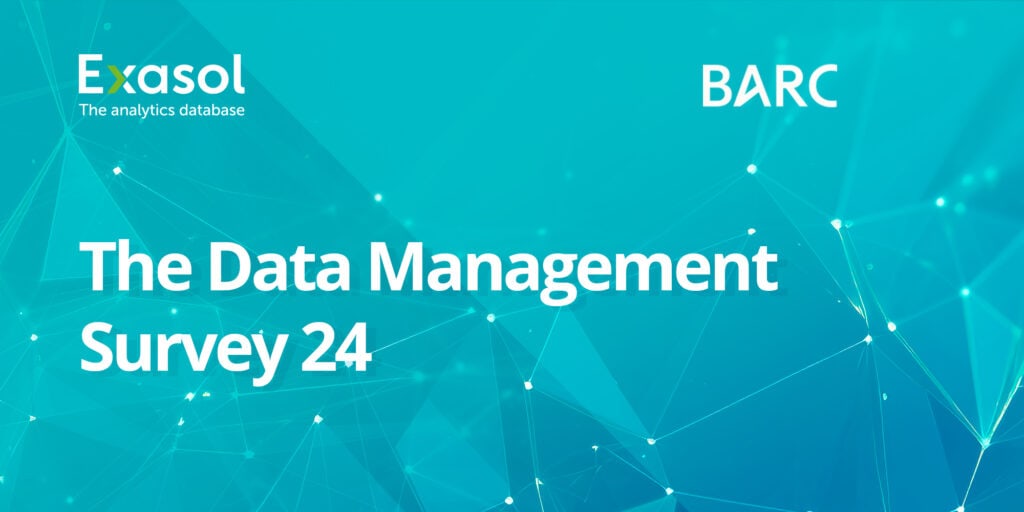
BARC: The Data Management Survey 24
Exasol Gets Top Marks for the Fourth Year Running
If you need to get the pulse of the data management market and get valuable insights more quickly, you can’t afford to miss BARC’s The Data Management Survey 24. Based on user feedback and covering everything from the selection and purchase of software to deployment and use, it’s an essential round-up of the top vendors in the market, giving you a comprehensive understanding of how they compare and what they offer.
Discover why Exasol is top ranked across 20 different KPIs, from Performance and Platform Reliability to Connectivity and Vendor Support.
Read this Highlight report to find out:
- Why 95% of surveyed users rated our performance as excellent or good
- Why 91% of surveyed users rated our platform reliability as excellent or good
- How we stack up against the competition and achieve top rankings in our peer groups* across areas such as Functionality, Vendor Support and Project Success.
Ready to learn more? Download the report today to see why so many organizations trust Exasol to transform the way they use data.
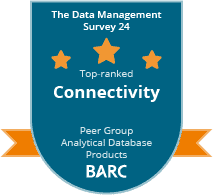
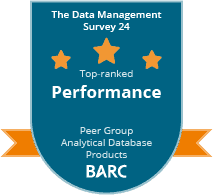
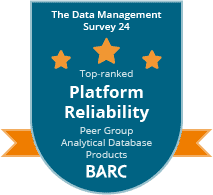
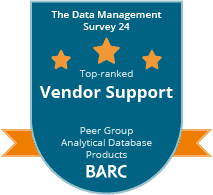
*Peer groups are for Analytical Database Products and Cloud Data Warehousing
For more information, go to:
https://barc.com/de/reviews/
https://barc.com/de/reviews/data-tools/
and
https://bi-survey.com/
Turn your business intelligence into better insights today!
